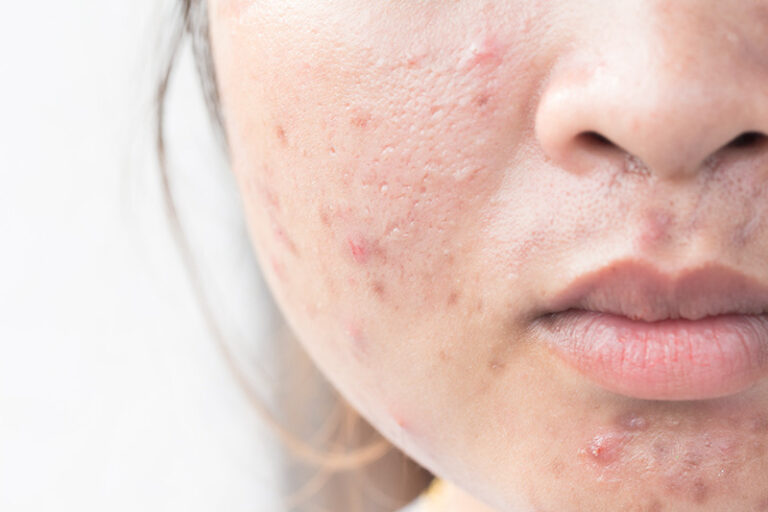Acne is a common skin condition that affects millions of people worldwide, causing not only physical discomfort but also emotional distress and self-consciousness. While conventional treatments, such as creams and topical medications, can help control acne, emerging research suggests that probiotics—friendly bacteria that promote gut health—may offer a natural and effective approach to acne control. In this blog post, we’ll explore the link between probiotics and acne and how incorporating probiotic supplements into your skincare routine can help improve skin health and reduce acne breakouts.
Understanding the gut-skin connection: The gut microbiome, which consists of trillions of microorganisms that inhabit the digestive tract, plays a crucial role in regulating immune function, inflammation, and hormonal balance. Emerging evidence suggests that imbalances in the gut microbiome, known as dysbiosis, may contribute to inflammatory skin conditions like acne. When the gut microbiome is disrupted, it can lead to systemic inflammation, increased sebum production, and altered hormone levels, all of which can exacerbate acne symptoms.
How probiotics can help: Probiotics work by restoring balance to the gut microbiome, promoting the growth of beneficial bacteria and suppressing harmful pathogens. By modulating the immune system and reducing inflammation, probiotics may help relieve acne symptoms and promote clearer, healthier skin. Additionally, certain probiotic strains have been shown to produce antimicrobial compounds that inhibit the growth of acne-causing bacteria, such as Propionibacterium acnes.
Research Supporting Probiotics for Acne: Several studies have investigated the potential benefits of probiotics for acne treatment, with promising results. A 2016 review published in the International Journal of Women’s Dermatology found that probiotic supplements containing Lactobacillus and Bifidobacterium species were effective in reducing acne severity and improving overall skin health. Another study published in the Journal of Cosmetic Dermatology in 2018 reported that oral supplementation with a specific strain of probiotic bacteria, Lactobacillus rhamnosus, produced significant improvements in acne lesions and inflammatory markers.
Choosing the Right Probiotic: When selecting a probiotic supplement for acne control, it’s essential to look for products containing strains that have been specifically studied for their skin health benefits. Lactobacillus and Bifidobacterium species are among the most commonly studied probiotic strains for acne treatment. Additionally, opt for probiotic supplements that contain a high concentration of live bacteria (colony-forming units, or CFUs) and are free of unnecessary fillers and additives.
Incorporating probiotics into your skincare routine: In addition to taking oral probiotic supplements, incorporating probiotics into your skincare routine may provide additional benefits for acne-prone skin. Look for skincare products that contain probiotics or prebiotics, which nourish the skin’s natural microbiome and support a healthy skin barrier. Probiotic-infused cleansers, moisturizers, and serums can help balance oil production, reduce inflammation, and promote a clearer complexion.
Acne is a complex and multifactorial skin condition, but emerging research suggests that probiotics may offer a natural and effective approach to managing acne symptoms. By restoring balance to the gut microbiome and supporting a healthy immune response, probiotics may help reduce inflammation, regulate sebum production, and inhibit the growth of acne-causing bacteria. Whether taken orally as supplements or applied topically in skin care products, probiotics have the potential to revolutionize acne treatment and give people clearer, healthier-looking skin. As always, it is essential to consult with a dermatologist or healthcare provider before beginning any new supplement or skin care regimen, especially if you have underlying health conditions or are taking medication. With the right approach and support, you can achieve clearer skin and renewed confidence on your journey to an acne-free life.

